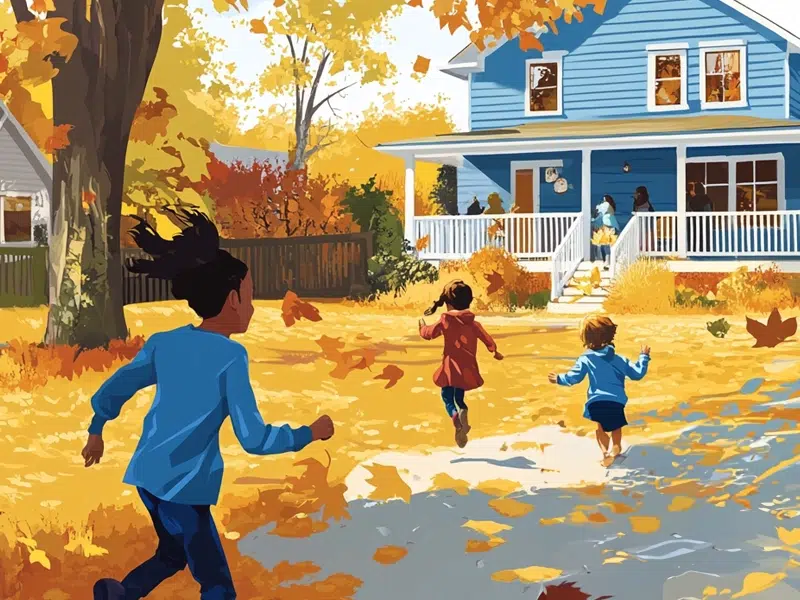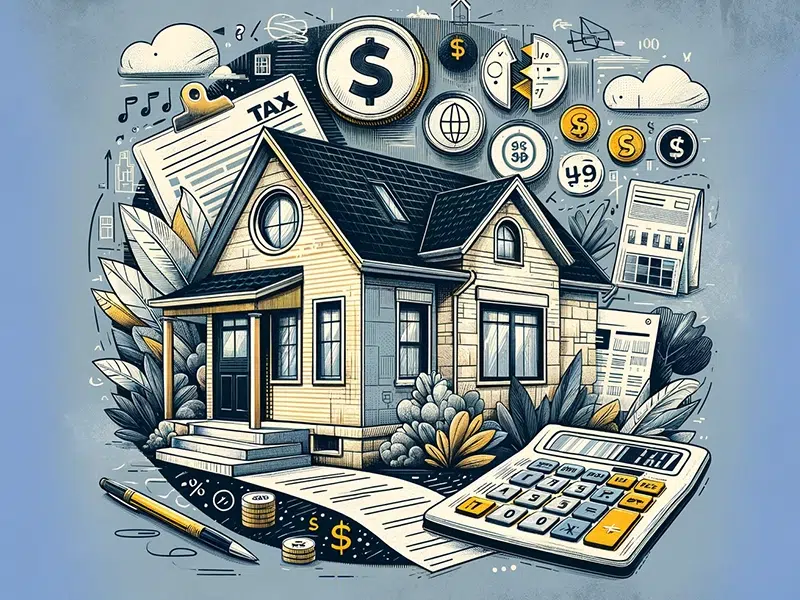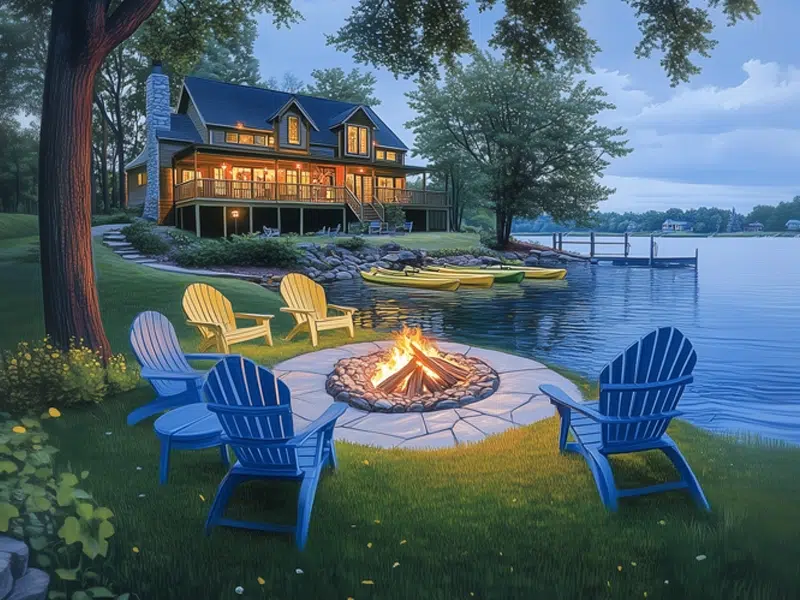New York Airbnb Laws and NYC Vacation Rental Regulations – What to Know When Hosting in The Big Apple
New York is among the top five most visited states in the U.S., with tourism being one of the main sources of income for residents in various cities, towns, and counties within New York. Get answers to questions like “Does NYC have Airbnb regulations?” and more with our comprehensive guide.
New York’s approach to short-term rental regulations varies from city to city, town to town, and even neighborhood to neighborhood. Understanding the local ordinances that apply to your specific location is crucial. If you have questions about short-term rentals in New York, contact Proper Insurance. Our agents are experts in the vacation rental industry. Call 888-631-6680.
Unsure if your insurance meets New York’s latest requirements? Many policies leave gaps that could lead to costly claims, and research shows that 90% of short-term rental owners are unknowingly misinsured. During your free 15-minute consultation, we will verify that insurance meets the needs of your unique short-term rental by revealing hidden gaps in your current coverage.
- Buffalo, New York, Airbnb Regulations
- Catskill, New York, Short-Term Rental Laws
- Cold Springs, New York Short-Term Rental Laws
- Hunter, New York, Vacation Rental Laws
- Lake Placid, New York, Airbnb Laws
- New York City, New York, Airbnb Laws
- Southampton, New York, Short-Term Rental Laws
- Village of the Branch, New York, STR Laws

Buffalo, New York, Airbnb Regulations
Updates Registration Requirements and Airbnb Laws for Short-Term Rental Hosts
In November 2019, the city of Buffalo passed an ordinance updating previous Airbnb laws and regulations, now requiring short-term rental hosts to register their properties through the Department of Permits and Inspections Services.
Seen largely as a first step, this ordinance will require short-term Airbnb rental properties to pay a fee to the governing body and maintain local contact with the city in case of emergency. The nearby town of Amherst, NY has recently passed similar legislation after co-writing the ordinance with Buffalo.
The following regulations are in place:
- Licensing: Owners must submit a business license application to the Department of Permit & Inspection Services.
- Registration: For owner-occupied rental dwellings, the first-time registration fee is $150, with a $75 annual renewal fee. For non-owner-occupied rental dwellings, the owner must file for a special use permit with the Department of Permit and Inspection services, and the registration fee is $250 with a $150 annual renewal fee. Owners outside Erie County must designate a local point of contact.
- Insurance: Operators in Buffalo must carry a minimum of $1M in liability insurance. Exclusively endorsed by Vrbo, Proper Insurance provides the most comprehensive coverage for the risks of short-term rentals.
Catskill, New York, Short-Term Rental Laws
Officials Decide Upon Airbnb Laws and Regulations Based Upon Cost of Operation
The Catskill Village Board of Trustees has passed a new short-term Airbnb rental law, requiring a fee when purchasing or renewing your short-term rental permit. With over 1000 vacation rentals in Greene County, New York, Trustee Natasha Law, states that “All businesses are required to have annual fire inspections, health inspections, pay insurance, and other fees in order to be able to operate, so why should an STR be any different?” So, whether you are applying for a short-term rental permit for the first time or renewing your permit, it is important to be aware of the new fees coming your way for Greene County, New York.
All Short-Term Rental Permits will expire within a calendar year from the date of issuance. Below, you can find the requirements for applying for and renewing your permit:
- Short-term rental describes furnished, self-contained apartments/rooms/residences that are rented for short periods of time (less than 30 days or month-to-month).
- You will need two proofs of residency: a copy of your driver’s license and a utility bill. A copy of the deed is also required.
- If you are not the property owner, a notarized letter from the property owner giving you permission to rent our rooms on the property for short-term rentals will be needed.
- The permit fee is $375 per unit. Please provide a check payable to “The Village of Catskill”.
- After you have paid for your permit, a code enforcement officer will contact you to schedule a full inspection.
- If approved, you will receive a permit within 7 days following the inspection.
- If you are found operating without a valid permit, you will be in violation of the Village code and will have 30 days to acquire a permit. If at that time you do not obtain one, you will receive an appearance ticket for Catskill Town Court, where you will be charged double the amount of the permit fee per unit.
- Permit fee of $375/unit for an initial permit and $125/unit for renewal.
Cold Springs, New York Short-Term Rental Laws
Updates Airbnb Laws and Regulations Enforcing Zoning for Permits
The Cold Spring Village Board adopted a local law that regulates short-term Airbnb rentals. The resolution was passed on July 29th, with a 3-2 vote. Major Dave Merandy states that “This law is to stop the proliferation of STRs. It’s not in a business district, it’s in a residential district. People in a residential area do not want to live in a commercial area.”
New Permit Requirements:
- Zoning: Short-term rentals will be allowed only in the R-1, I-1, and B-1 zoning districts
- Parking: All STRs in an R-1 or I-1 zoning district will be required to have one off-street parking space
- Housing Requirements: Temporary structures, tents, trailers, and recreational vehicles are prohibited for STRs
- Licensing: A registered STR cannot abut another registered STR. If a building contains multiple residences, only one residence in the building shall be permitted to obtain a short-term rental permit
- Ownership Requirements: Properties owned by corporations, LLCs, and other such entities cannot be used as an STR unless the property is Owner-Occupied by one of the individual owners of the entity
Current Regulations for all Short-Term Rentals in Cold Springs:
The operation of an STR must comply with the following new regulations:
- Hosting Restrictions: All short-term rentals shall be offered to only one party of short-term renters at a time; not rented as separate bedrooms, beds, or spaces to separate parties
- Point of Contact: The host and/or agent must be available at all times to respond in person, on-site, within twenty minutes to any issues that may arise regarding the condition, operation, or conduct of the guest of the STR.
- Bookkeeping: The Host of the STR shall maintain a record of the number of Guests and the beginning and end dates of each short-term rental. Such records shall be submitted to the Village Clerk by September 30th of the calendar year. Failure to submit may result in a subsequent STR application being considered incomplete and ineligible for the lottery.
- Other: A host shall prominently display, at all times, the contact names and phone numbers of both the host and the agent, along with the list, issued by the Village, of emergency services numbers and information relating to garbage, recycling, winter parking, and noise
Hunter, New York, Vacation Rental Laws
New Laws and Insurance Regulations for STRs in New Yor
As of July 2023, the Town of Hunter has implemented new short-term rental (STR) laws. To maintain safety, correct use, and neighborhood peace among short-term rentals the Town of Hunter has decided to comprehensively regulate the STR market. To stay current on laws and regulations please visit the Town of Hunters website for more information.
The current regulations are in place:
- Permit: Obtain a permit from the Town Code Enforcement Officer. Details and fees available on the application. The application includes a point of contact, floor plan, location of building, parking layout, and more.
- Parking: Required off-street parking must be equal to the maximum number of vehicles permitted.
- Waste: Follow proper disposal guidelines, including weekly garbage removal. The bin shall be bear-proof and sealed to contain any odors.
- Insurance: The home must be insured for the value of the dwelling, plus must hold at least $300,000 of commercial liability. This is a bit misleading, as there are no policies that cover under $1 million in commercial liability. The Town of Hunter requires off-premises liability as well as third-party liability coverage. Proper Insurance is the most comprehensive policy on the market and covers the demands of the insurance regulations set by the Town of Hunter.
Lake Placid, New York, Airbnb Laws
Updated Regulations and Laws for Airbnb Rentals
The governments of Lake Placid and the Town Board in North Elba, where Lake Placid is located, passed new Airbnb laws and regulations when creating a permit system in 2020 to govern short-term rentals after five years of discussion. Two years later as the short-term rental business grew across the state and locally, residents complained that renters were rude and noisy. Officials in both the village and town put a moratorium on permits to give themselves time to amend the laws. On January 3, 2023, the board of trustees and North Elba Town Council approved new laws. STRs are banned from residential areas in town and the villages, and a cap has been placed on how many permits the city will hand out.
The current regulations are in place:
- Applying for a permit:
- Certify I have notification from an insurance company acknowledging the property is used as a short-term rental.
- Certify all smoke alarms and carbon monoxide detectors are in correct working order and that the correct number of devices are installed per the NY State Building Code.
- Certify a working fire extinguisher is in each cooking area and in close proximity to each open flame source.
- Owner-supplied advertisement for the unit being considered for short-term rental.
New York City, New York, Airbnb Laws
Updated NYC Airbnb Laws for Short-Term Rental Hosts
New York City passed new laws and regulations that largely restrict the operation of short-term rentals. The decision and its subsequent implementation have caused significant frustration among short-term rental business owners. These individuals, who depended on the income generated from their properties, are now grappling with the impact of these changes.
Given the rapid pace at which laws and regulations can change in New York City, it’s advisable to regularly consult the NYC website for the most current information.
Rules and Regulations as of Sept. 14, 2023:
- Licensing: Hosts must have a license to operate.
- Stay Limit: Short-term rentals are considered longer than 30 days.
- Host Requirement: The host must be present if the guest’s stay is shorter than 30 days.
- Access: Only two guests can stay under 30 days, but they must have access to the whole house and all exits.
- Emergency Exits: Internal doors cannot have locks in case of an emergency and need to escape.
- Safety: Hosts are responsible for ensuring the property is safe and up to code.
Southampton, New York, Short-Term Rental Laws
Stricter Laws in Place After a Fatal Fire at a STR
In response to a devastating fire, Southampton city authorities have implemented more rigorous laws and regulations concerning short-term rentals, with the primary objective of ensuring guest safety.
The importance of safety in short-term rentals cannot be overstated, and this is reflected in the thoroughness of the application process. Despite its complexity, this process serves an essential purpose, and the county has facilitated it by developing a Permit Application Checklist.
The following laws and regulations are in place:
- Permit: A two-year permit is required
- Minimum Stay: The minimum stay is 14 days. There is no maximum.
- Room Rentals: Two rooms can be rented out to no more than two people
- Safety: To obtain a permit, the home must be up to code and have certain features in their respectable locations, such as smoke detectors, carbon monoxide detectors, GFI outlets, a pool gate, a maintained yard, and the structure must be in good repair overall.
Village of the Branch, New York, STR Laws
Passed Airbnb Laws in Hopes of Increasing Tourism in the Town
Village of the Branch, a small town in New York, passed new Airbnb laws and regulations in May of 2018. These new regulations allow residents to list their properties on sites such as Airbnb and Vrbo. While the small town is only 1 square mile in size, officials recognize that short-term rentals may help bring more business to the area during the Summer. The rental regulations for short-term hosts in the Village of the Branch are as follows:
- Rules apply to leases of 30 days or less and include conditions intended to maintain the quality of life for neighbors.
- Homeowners must apply for a permit to rent ($50 annually), and only owner-occupied homes with on-site parking are eligible for rental.
- Parties are forbidden after 10 p.m., and homeowners can rent no more than two bedrooms.
Is Your Short-Term Rental Also Your Primary Residence?
If your short-term rental is also your primary residence, you need to make sure you have the correct insurance coverage. A traditional homeowners policy provides you with personal liability; however, it doesn’t provide sufficient coverage for your business activity (i.e. your short-term rental). It is important to have a comprehensive commercial general liability policy.
The good news is, with Proper’s policy, you can have both! Proper offers personal liability and commercial general liability when your short-term vacation rental is also your primary residence. With $1,000,000 in commercial general liability and the option to increase to $2,000,000, you’ll have the perfect coverage for your personal use and the unique risks of operating a short-term vacation rental. Proper’s policy meets and exceeds local city requirements and provides the best coverage possible for your short-term rental.
Verify Your Short-Term Rental Insurance
Proper Insurance is the nation’s leading short-term rental insurance provider, protecting homes in all 50 states by replacing inadequate Homeowners/Landlord policies. Proper’s comprehensive coverage meets or exceeds standard short-term rental requirements with $1M Commercial Liability (CGL) and unmatched protection for your property and revenue. Additional one-of-a-kind coverages include guest-caused theft/damage, amenity liability (bikes, kayaks, hot tub, etc.), bed bugs, fleas, squatters, and more.
Insurance for short-term rentals can be complex, and many policies fall short when it comes to covering unique rental risks. That’s why verifying your coverage matters—whether it’s understanding if your policy includes liability for guest injuries, protects your income during the time of a claim, or safeguards against unexpected issues like guest-caused damage.
Our agents can help you navigate the nuanced details, clarifying what’s covered, where there might be gaps, and if upgrading your insurance policy makes sense for your unique business. Take a few minutes to verify your insurance and gain confidence in the protection you have for your New York short-term rental.
Please note: The information provided is intended as a guide and may not be comprehensive or current. Regulations may change and could vary by area or situation. Always consult local authorities or a legal professional to ensure you have the most accurate information for your short-term rental property.






